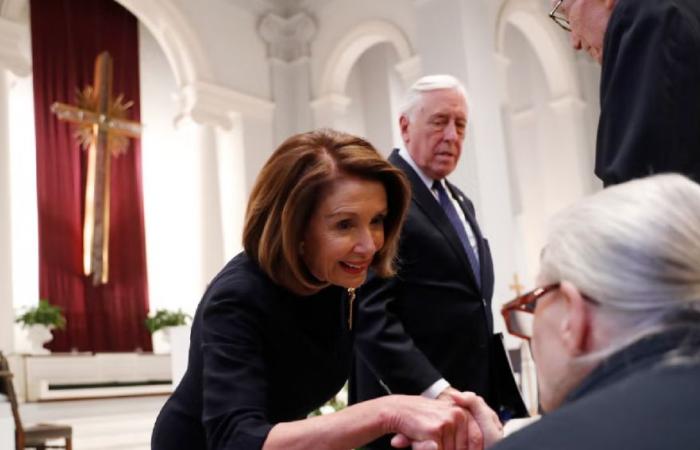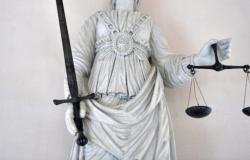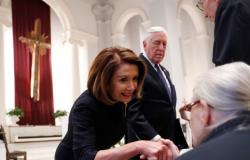
by Tim Daniels
December 15, 2024
The old House Speaker Nancy Pelosi once again finds herself at the intersection of faith and politics, as her long-running dispute with Archbishop Salvatore Cordileone over his eligibility to receive Holy Communion remains unresolved. resolved. At the heart of the matter is a deeply personal conflict that has reached the highest levels of the Catholic Church, with the Vatican having quietly become involved in examining the matter.
A complex intersection between religion and politics
The controversy began in May 2022 when Archbishop Cordileone publicly banned Ms. Pelosi from receiving communion in the Archdiocese of San Francisco because of her stated support for abortion. Citing Canon 915 of Catholic Church law, Archbishop Cordileone argued that Ms. Pelosi’s position constituted a “grave sin” and she deserved to be excluded from the Eucharist.
Despite this ban, Mrs. Pelosi continued to receive communion in other dioceses and even abroad. “I received communion anyway. That’s her problem, not mine,” Pelosi said in a candid interview with the National Catholic Reporter (NCR). She added that her faith remained central to her life and described the Eucharist as a deeply personal and sacred experience.
The role of the Vatican
Ms Pelosi revealed that the dispute was now being considered by the Vatican, although the timing and details of her appeal were unclear. According to canon law experts, people subject to such bans can seek “recourse” to the Holy See, challenging the procedural or substantive grounds for the decision.
Although Ms. Pelosi did not discuss the matter directly with Pope Francis, she received communion at the 2022 Mass he presided over in St. Peter’s Basilica. The pope’s implicit acceptance of his participation adds a layer of complexity to the debate, reflecting broader tensions between progressive Catholic leaders and conservative American bishops.
Cordileone calls for dialogue
In response to N. Pelosi’s recent remarks, Mgr. Cordileone released a statement reiterating his invitation for open dialogue. “Dialogue can dissolve hostilities, clarify misconceptions and build new bonds of friendship,” he said. Bishop Cordileone has already stressed that his action was part of the defense of life, arguing that the Church’s teachings on abortion left no room for ambiguity.
The archbishop also framed the discussion as an opportunity to explore areas of common interest, such as religious freedom and immigration. “Catholics are not afraid of the truth,” he said, inviting Ms. Pelosi to start the conversation.
Faith beyond borders
Ms. Pelosi’s public faith journey highlights the tension between personal beliefs and public policy, a challenge many Catholic political figures face. She expressed her commitment to the sacraments of the Church, recalling precious moments such as her First Communion and the baptisms of her grandchildren. Her love of faith is evident, even if she questions certain institutional practices.
However, Ms Pelosi has also openly criticized the Vatican on issues beyond its ban on communion. In a Dec. 10 interview with NCR, she condemned the Holy See’s agreement with China regarding the appointment of bishops, calling it a betrayal of the Gospel. “I don’t see what they got,” she said.
A broader cultural battle
Ms. Pelosi’s case highlights the growing division within the Catholic Church over how to engage with modern political and social issues. The communion ban is part of a broader culture war that has seen bishops take similar actions against other pro-choice politicians, including Sen. Dick Durbin.
For Ms. Pelosi, the Eucharist remains a deeply spiritual experience, one that transcends the controversies surrounding it. “Every day a priest transforms bread and wine into the Body and Blood of Christ, it’s a miracle,” she said. “It’s glorious to be present in that moment.”





